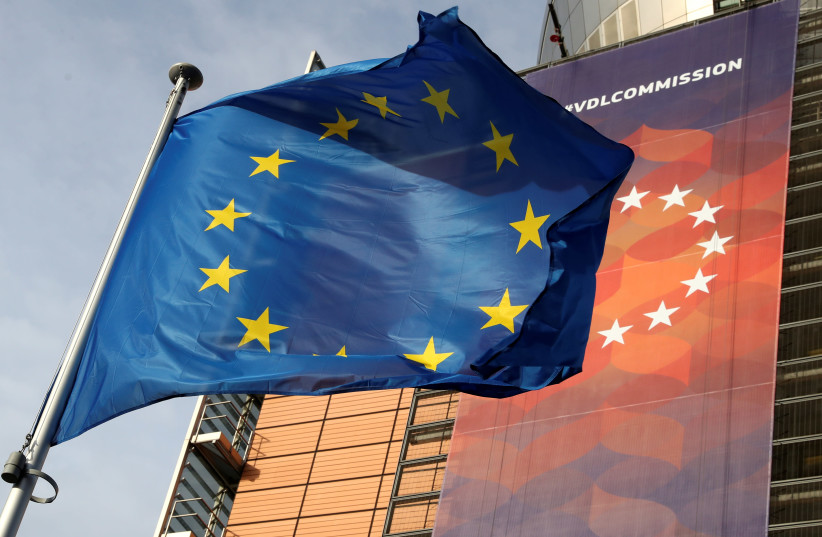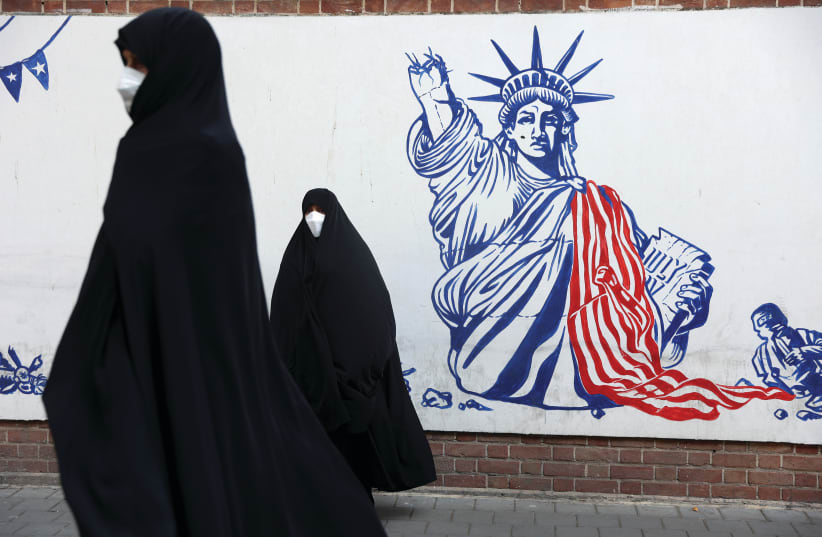Having led West Germany’s economic miracle as finance minister in the 1950s, newly appointed chancellor Ludwig Erhard had an idea of which no one had thought: Buy East Germany.
Thinking as the economist-turned-statesman that he was, Erhard figured that a $25 billion loan would be irresistible for the Soviet Union, whose economic ailments had by then become glaring. Yes, the loans would doubtfully be repaid, but that was a price the German leader was prepared to pay for his nation’s reunification.
The plan, which did not become known until well after the end of the Cold War (“Former German chancellor considered buying East Germany,” Der Spiegel, October 4, 2011), was presented to Lyndon Johnson, who rejected it. The question is why, and the answer to that, though not fully clear, is instructive for what is happening these days between America, Europe and Israel surrounding Iran.
TECHNICALLY, THE Americans argued that the Russians would not accept the plan. Substantively, however, what was really at play in this episode was the difference in strategic priorities between Washington and Bonn. Erhard’s thinking was national. He wanted his country reunified. Johnson’s thinking was global. He wanted communism’s economic failure to mature, and infusing it with cash would hardly serve that cause.
The rest of Europe appears to have not been told of the plan, but its conceptual thinking became clear later, when another German leader, Willy Brandt, conceived Ostpolitik, an outlook that was neither national nor global, but continental.


As Ostpolitik’s followers saw things, the most important thing was not to change East Europe, but to prevent war. That is why the man who stood at the Berlin Wall and demanded its destruction was not a European, but the American Ronald Reagan.
Now, like Erhard in his time, Israel is thinking nationally, while Europe is once again thinking continentally. These are the only ways of thinking the two know, and they thus have no choice. America, however, faces a dilemma, and must make a choice.
ISRAEL’S STRATEGIC aim in Iran is not the correction of Iran’s regime, but the restoration of Persia’s friendship as Israel recalls it from last century and as the Jewish people recalls it from antiquity.
At the same time, Israel has an overarching aim of defending itself, by itself. That is not Israel’s Iran strategy, but its survival strategy. That is why Tehran’s nuclear program is intolerable from any Israeli viewpoint. That is why no one here disagrees with the ongoing effort to sabotage Iran’s nuclear program, and to derail its efforts to plant hostile militias at our doorstep.
The dilemmas surrounding a prospective Israeli attack in Iran are therefore not strategic but tactical. An Israeli assault’s one strategic constraint is that it should not leave the blameless Iranian people humiliated, as argued here in the past (“Don’t bomb Iran,” November 4, 2011).
This, then, is the national thinking that guides Israel’s Iran strategy.
Europe’s Iran strategy is also a no-brainer. Brussels will not confront Tehran’s moral record any more energetically than it confronted the USSR’s. What they care about in Brussels is not how to fight for justice, but how to keep the war for justice away from European shores.
Like it or not, the EU’s organizing principle is continental. And from its narrow viewpoint, one has to admit that it worked. European diplomacy has indeed served its founders’ vision, which boiled down to “peace in our time in our continent.”
America’s situation is entirely different.
AMERICA FACES a dilemma. It can turn to the legacy of Charles Lindbergh, the fabled aviator who preached isolationism even in the face of Nazism’s assault, and it can turn to the legacy of Ronald Reagan, who stood up to the communist scourge and confronted it not only diplomatically and economically, but also morally.
Lindbergh, speaking in Des Moines, Iowa, two years after World War II’s outbreak and three months before Pearl Harbor, said in his famous Speech on Neutrality: “We cannot allow the natural passions and prejudices of other peoples to lead our country to destruction.”
As even he soon realized, the forces leading to destruction were not within America, but outside it, and the destruction they were inspiring was by nature limitless, and thus demanded a confrontation that would blend power and morality, a combination that only America possessed.
The same now goes for Iran, whose clerics’ original sin is not their nuclear scourge, but their uncorking of the religious violence that has killed thousands from New York, Buenos Aires, and Bali to Volgograd, Paris and Madrid.
Though often performed by others, Islamist terrorism’s attack on civilization was inspired by the ayatollahs’ violent seizure of Iran, and by their unpunished violence elsewhere. This war began with the rise of the ayatollahs and will not end before their downfall.
It follows that talking with them about their nuclear program is like talking with Hitler about the Sudetenland. It misses the point. Instead, talks about easing sanctions should begin with a demand that Iran free all political prisoners, hold free elections and recognize Israel’s right to exist, as most Arabs’ governments now do.
Yes, the mullahs would reject this flatly, the way the Soviets did when they heard Reagan’s cry “Mr. Gorbachev, tear down this wall,” but the Iranian people, like the East Bloc’s residents in their time, would be inspired.
Eulogizing Reagan, the chancellor who unified Germany and also stood at Reagan’s side as he spoke, Helmut Kohl, said Reagan was “a stroke of luck for the world, especially for Europe.” All true and well said, except that what Reagan represented was not luck. It was conviction. That is what defeated the Soviet Union, and that is what will defeat the Islamic Republic of Iran.
The writer’s bestselling Mitzad Ha’ivelet Ha’yehudi (The Jewish March of Folly, Yediot Sefarim, 2019), is a revisionist history of the Jewish people’s leadership from antiquity to modernity.
